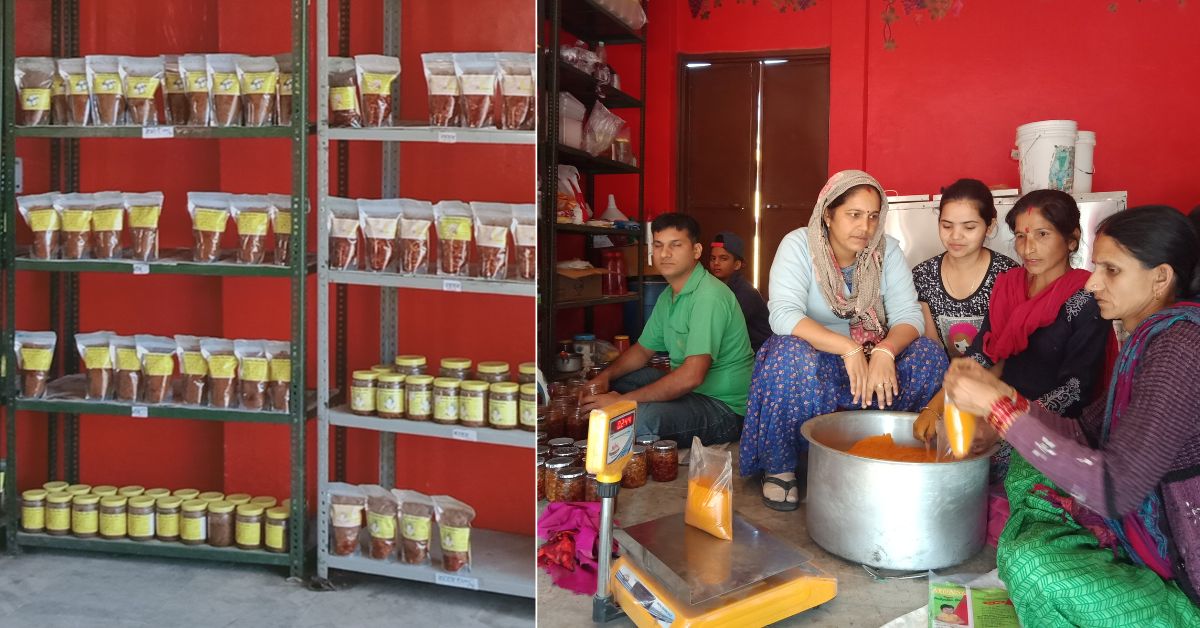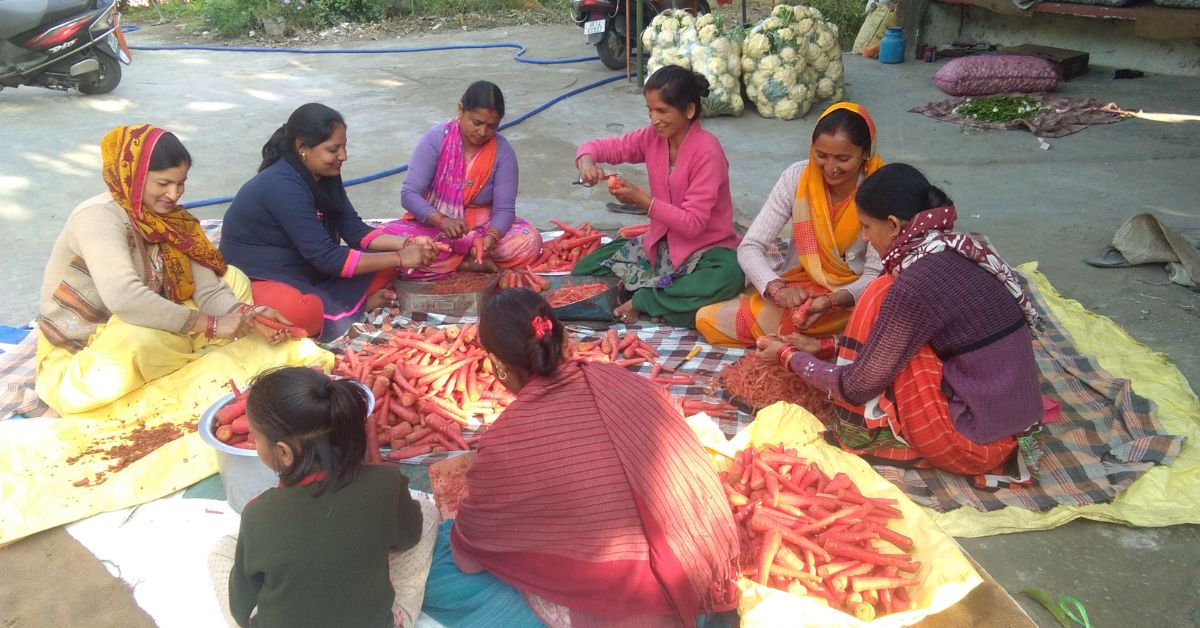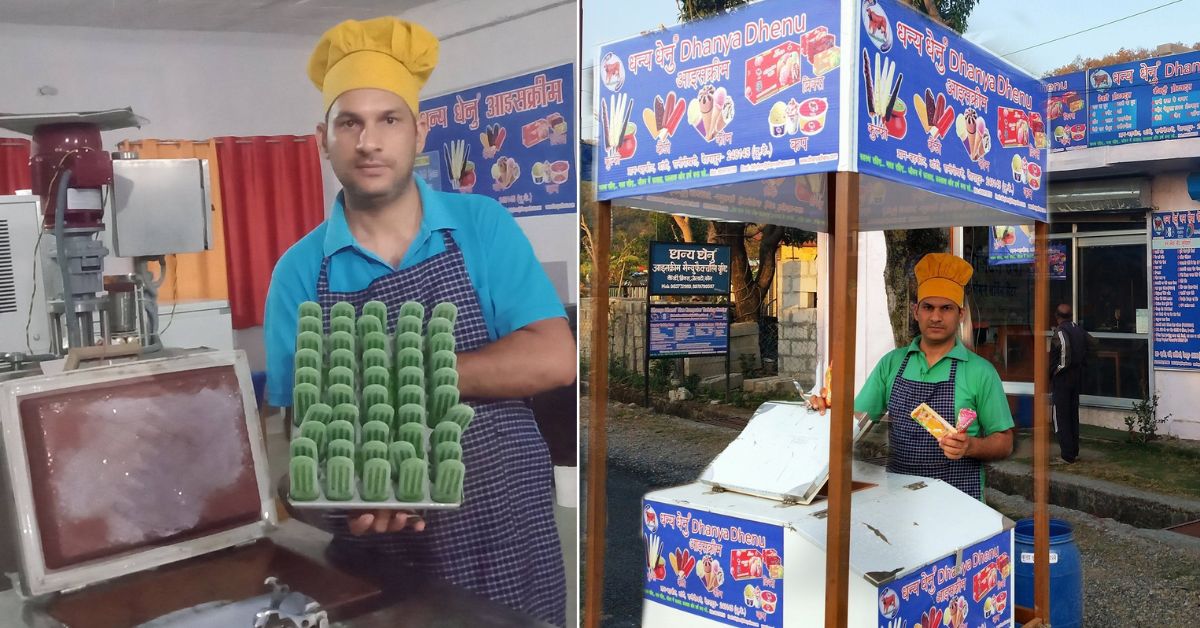While working through deadlines sitting at his giant Bengaluru office, Hariom Nautiyal decided this was not the life he aspired to live. Having grown up in the quaint Barkot village in Dehradun, he deeply missed his carefree rural life.
“I disliked the idea of rat race, deadlines, and fear of losing jobs during recessions. We lived in constant fear. We even feared posting pictures from vacations. I did not want this life,” he says in conversation with The Better India.
He shares that it was during the recession of 2009 that he had landed a coveted job as a web developer – a moment of great joy for him. However, the cut-throat competition and the fast-paced city life left him yearning for a more fulfilling existence.
“While living in the city, my greatest treasure could have only been purchasing a 3BHK but I wouldn’t have lived a full life. I wanted to move back home,” he adds.
Hariom worked as a team lead when he finalised his decision to move back in 2013. Certainly, he says, it was not an easy decision to pause a handsome monthly salary, leave metro cities behind and start any other work from scratch, especially in a village.

However, his bold move resulted in his own business venture named ‘Dhanya Dhenu’ which sells a wide variety of dairy products such as milk, ghee, paneer, curd, mawa, along with 15 kinds of pickles and candies, and at least 20 varieties of ice creams.
Here’s how he has established a multi-crore empire despite staunch opposition.
From city office to cowshed
When Hariom came back and broke the news of quitting the city job, it invited a lot of criticism from villagers. They started calling him nikamma (useless) and pagal (crazy). “I stopped attending any local events. People would give my example to children and say that if they quit studies, they would end up like me,” he shares.
Upset with the criticism, he built a permanent shelter and cowshed, adjacent to his home. There, he found solace. “We had a pet cow with its small calf. I would play with the calf and they would come to me for pets. I was the most relaxed in their company as opposed to being around humans where I felt suffocated,” he adds.
Hariom decided to follow his heart’s calling and ventured into dairy farming – a decision that initially drew scepticism and ridicule from the community. Starting with a modest investment of ten cows, he started selling milk to locals.
“But it was not easy. Most of the cows were lactating at the same time. I would have 50-60 litres of surplus milk every day. Everybody had some regular milk sellers, so I had no choice but to give away milk to people for free,” he adds.
His day started at 2am when he would milk the cows and move out in hope of making some sales. On a lucky day, he would make Rs 9 profit while most of the time, milk was given away for free.

“My parents would distribute milk to neighbours. While they would readily accept the free milk, they would not lose the chance to mock me either. I had nothing to say to them then,” he adds.
Rs 9 to Rs 5,000 daily profits
Determined to prove his detractors wrong, Hariom persisted and gradually won over the hearts of rural women and dairy farmers who saw potential in his vision. “After I started making some sales, these dairy farmers asked me to not buy more animals and instead procure milk locally and contribute to boosting their income,” he adds.
By 2016, Hariom had established a milk collection centre in his village and tapped into government subsidies to support dairy projects, particularly benefiting marginalised groups like women from scheduled castes and tribes, widows, and those below the poverty line.
By ensuring quality assurance through regular checks and organic fodder supply for his animals, Hariom built a reputation for excellence and integrity in his business. “To develop trust among customers, I distributed free lactometers and promised them if the reading was less than 26 (signifying normal milk density), I would give the milk for free that day,” he adds.
This simple strategy worked for him. Today, he sells 250 litres of milk daily to people in Dehradun and Rishikesh.
Beena Silswal, a homemaker who lives in Rishikesh, has been a regular customer of Dhanya Dhenu for the past nine years.
Sharing her experience, she says, “I purchase two litres of milk every day from Hariom. Initially, he gave me a lactometre to test the quality of the milk. I find that this milk doesn’t have a foul smell and is also not adulterated. My children are also very fond of the pallar that he makes. Whenever they come home from Delhi, I pack those bottles for them.”

Innovating further, Hariom utilised the surplus milk to produce a range of dairy products like mawa, ice cream, rabri, faluda, pallar (desi fermented drink made with buttermilk), diversifying his offerings and capturing local market demand. Later on, he also introduced a wide range of pickles to expand the business.
In all, he makes a profit of Rs 2 crore annually with his company by selling the products locally and in trade fairs and through distribution channels. He also employs 500 people from 15 villages including Falsuwa, Ghamauli, and Barkot.
Despite the financial success that followed, Hariom remains grounded and emphasises the importance of hard work and perseverance beyond mere monetary gains.
“I cannot forget the initial six months of starting my business. It would be disheartening whenever I would sit and count my monthly expenses on green fodder vs sales. There was a time when I was hardly earning Rs 9 per day as profit. Today, I make Rs 5,000 profits daily from milk alone. If I had not believed in myself and didn’t keep my patience, I would not have come this far,” he says.
Today, Hariom’s dairy venture not only thrives but also reflects the untapped potential and promise of rural entrepreneurship in India. “Working from my village home has been extremely convenient for me. Not only am I breathing pure air and eating nutritious food, I have been able to earn a decent livelihood for myself and empower my village community simultaneously,” he adds.
Edited by Padmashree Pande. All photos: Hariom Nautiyal.
No comments:
Post a Comment